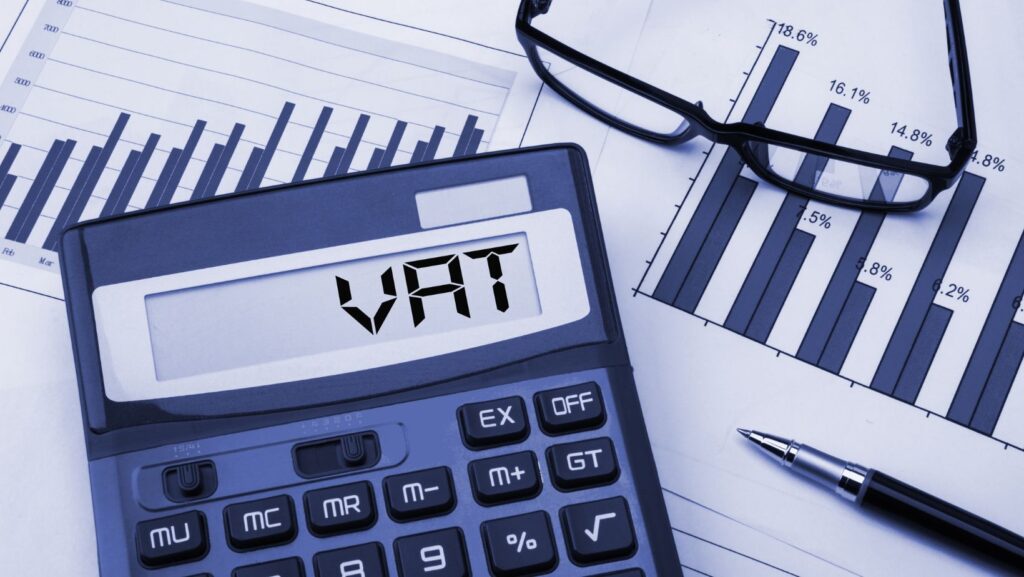Value Added Tax (VAT) is a pivotal part of the UK’s tax system, affecting nearly all goods and services. It functions as a consumption tax, meaning it is added at each step of the supply chain, from production to the point of sale, with the final cost typically passed on to the consumer. For businesses, mastering VAT is not just about compliance; it’s a crucial component that influences pricing strategies, accounting practices, and overall financial planning.
In this article, the UK accountants Howlader & Co. will cover the basics of VAT registration for UK businesses, including mandatory and voluntary registration, and what happens if you don’t comply. We’ll also discuss how to choose the best VAT scheme for your business, manage VAT returns effectively, and tackle common VAT-related issues to keep your operations compliant and efficient.
Understand VAT Registration Requirements
For businesses operating within the UK, understanding when and how to register for Value Added Tax (VAT) is crucial. VAT registration is mandatory for businesses once their taxable turnover exceeds the current threshold of £85,000 over any 12-month period. This threshold is pivotal as it determines who needs to register and collect VAT on behalf of the government.
Mandatory Registration
When a business’s taxable turnover—the total revenue that is counted for VAT purposes—reaches or exceeds £85,000, VAT registration becomes essential. The threshold calculation considers the rolling 12-month period, not just the financial year, so continuous monitoring of turnover is necessary. Failing to register for VAT promptly can lead to significant penalties, including fines and the need to pay the VAT owed from the time the business should have registered, not just from the time it did.
Voluntary Registration
Businesses with a taxable turnover below this threshold can opt to register for VAT voluntarily. This early registration has several benefits, particularly for startups and smaller businesses. By registering, a business can reclaim VAT on its expenses—this is particularly beneficial if the business has significant VAT-liable purchase costs. Moreover, being VAT-registered can enhance a business’s credibility; it shows potential business partners and customers that the company is of a certain scale, potentially leading to increased trust and more business opportunities.
Implications of Non-Compliance
Not registering for VAT when required can not only result in financial penalties but also damage a business’s reputation. Compliance shows that a business is responsible and reliable. It is essential to stay informed about the specific requirements and timelines for VAT registration to avoid any legal or financial issues.
Voluntary registration can be a strategic decision even for smaller enterprises, potentially leading to financial benefits through VAT reclaim on overheads, capital goods, and services used in the business. Choosing to register voluntarily should be weighed carefully, considering the administrative responsibilities against the potential cash flow benefits.
Choose the Right VAT Scheme
Choosing the right VAT scheme is crucial for managing the cash flow and administrative burden of VAT compliance effectively. The UK offers several VAT schemes, each designed to suit different types of businesses based on their size, cash flow, and administrative capabilities. Understanding the specifics of each can help businesses select the most advantageous option.
Standard VAT Scheme
This is the most common VAT scheme and involves charging VAT on sales at the appropriate rate and reclaiming VAT on purchases. It requires businesses to keep detailed records of all taxable sales and purchases. This scheme is suitable for businesses with a regular turnover and those that can maintain detailed accounting records. It provides flexibility in terms of VAT recovery but requires careful bookkeeping.
Flat Rate VAT Scheme
Aimed at smaller businesses with a turnover of less than £150,000, this scheme simplifies the record-keeping process by applying a fixed VAT rate to the turnover. The rate depends on the industry and is less than the standard VAT rate because it assumes that VAT on purchases is accounted for. This scheme can significantly reduce administrative burdens and is beneficial for businesses that do not have significant VAT-liable expenses.
Cash Accounting Scheme
Under this scheme, VAT is paid to HMRC on sales only when payment is received, and VAT on purchases can only be reclaimed once payment is made to suppliers. This can be particularly beneficial for businesses that experience delays in receiving payments from customers, as it helps align VAT payments with actual cash flow. Suitable for businesses with cash flow concerns or those that frequently deal with late payments.
Keep Accurate VAT Records
Accurate VAT record-keeping is not only a regulatory requirement but also a critical practice for managing a business’s financial health. UK businesses must maintain comprehensive records of all VAT-related transactions, which include sales and purchase invoices, import and export records, and summaries of VAT accounts. These records must be kept for at least six years, as they provide the necessary documentation to support VAT returns and will be crucial in the event of an HMRC audit.
Detail of Records
For sales, businesses should document the date, value, and the VAT rate charged on each sale. Purchase records should similarly detail the VAT paid. This also extends to transactions involving goods and services from abroad, where import and export documents must clarify the VAT status.
Importance of Accuracy
Maintaining precision in these records is vital. Accurate recording ensures that businesses charge the correct VAT amount on sales and reclaim the correct amount on VAT paid.

This accuracy prevents discrepancies during tax assessments and avoids potential fines and penalties associated with misreporting. Moreover, precise records can assist in highlighting areas where VAT processes might be optimized, improving overall financial management.
Strategic Benefits
Beyond compliance, good VAT record-keeping can aid strategic business decisions. It provides clear insights into the taxable aspects of business operations, helping to manage cash flows effectively. Automated accounting solutions can be particularly useful in maintaining these records, reducing errors, and saving time.
Manage VAT Returns and Payments
Managing VAT returns and payments efficiently is crucial for compliance and financial health. VAT returns, typically filed quarterly, require businesses to calculate and report the amount of VAT they have collected from customers and the amount they have paid on purchases.
Calculating VAT
To determine the VAT due, subtract the VAT amount paid on purchases (input VAT) from the VAT charged to customers (output VAT). If the output VAT exceeds the input VAT, the difference must be paid to HMRC. Conversely, if the input VAT is greater, you may claim a refund.
Timely Submissions and Payments
Adhering to submission deadlines is critical. Late submissions or payments can result in penalties and interest charges. To avoid this:
Use Accounting Software
Automate the calculation and submission process using accounting software. This reduces errors and helps maintain records systematically.
Set Reminders
Establish reminders well before the due dates for VAT returns and payments to ensure you have sufficient time to prepare and review the returns.
Maintain Regular Records
Keep regular and accurate records of all sales and purchases. This practice prevents last-minute rushes and errors in your VAT return.
Evaluate Regularly
Regular review of your VAT accounts helps catch any discrepancies early and adjust in subsequent returns, aiding in smoother financial operations.
Address Common VAT Challenges
Navigating VAT complexities effectively is crucial for businesses to ensure compliance and optimize financial operations. Common VAT challenges include dealing with international goods and services, understanding partial exemption rules, and managing VAT on capital assets. Here’s how businesses can tackle these issues:
International Goods and Services
VAT treatment for international transactions can be complex, depending on whether goods are imported or exported and the nature of services provided. For goods imported from outside the UK, VAT is generally paid at the point of entry, which can then be reclaimed as input VAT subject to normal rules.

For exports, goods sent to non-EU countries are usually zero-rated, meaning no VAT is charged, but they must still be reported. Services to businesses outside the UK are generally not subject to UK VAT, but those to consumers may vary depending on the service. It’s essential to understand the rules for the place of supply and ensure correct VAT treatment.
Partial Exemption Rules
Businesses that make both taxable and exempt supplies face the challenge of partial exemption. This affects how much input VAT can be reclaimed. To manage this, businesses must calculate the proportion of input tax attributable to taxable supplies and claim accordingly. Regularly reviewing and adjusting these calculations helps ensure accuracy and compliance.
Capital Assets
The VAT on capital assets might need different handling, especially if the assets are used for both taxable and exempt purposes. This requires an adjustment over several years through the capital goods scheme, affecting the amount of VAT reclaimable over time.
Maintain Detailed Records
Keep meticulous records of transactions, especially for international dealings and capital assets, to support VAT filings.
Use Expert Advice
Given the complexities, consulting with a VAT expert is advisable to ensure that all rules are correctly applied and the business remains compliant.
Stay Informed
Keeping updated with changes in VAT legislation, especially related to international trade and specific sector adjustments, is vital.
Stay Updated on VAT Changes
Remaining informed about changes in VAT legislation is paramount for businesses to adapt and comply with evolving regulations. Recent updates and potential future changes can significantly impact business operations, affecting pricing strategies, cash flows, and compliance requirements.
Continuous education and consultation with VAT experts are essential to ensure businesses stay ahead of regulatory changes. Subscribing to updates from HMRC, attending industry seminars, and engaging with professional accountants can provide valuable insights into impending changes and their implications. By staying proactive and informed, businesses can navigate VAT changes effectively, minimize risks of non-compliance, and capitalize on opportunities arising from new regulations.
Conclusion
Effectively managing VAT is crucial for business success. Understanding registration requirements, choosing the right scheme, and maintaining accurate records are vital. Timely submissions and payments, along with addressing common challenges like international transactions and partial exemption rules, are key. Stay updated on VAT changes through ongoing education and consultation with experts. Proactive management ensures compliance and optimizes financial operations. Remember, seek professional advice when needed and embrace continuous learning to master VAT management successfully.



